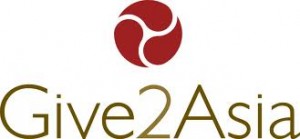
Give2Asia, a San Francisco-based 501(c)3 social enterprise explained that Guiuan, home to approximately 12,000 households, was the first municipality struck by Super Typhoon Yolanda when the storm hit in early Nov. 2013.
Based on an on-site assessment by Give2Asia, the disrepair that remains in Guiuan nearly three months after the storm is staggering.
More than 10,000 homes were totally destroyed with another 1,600 partially damaged, affecting 54,000 people in total. The major source of livelihoods in the area, fishing and coconut farming have also been lost, along with the required boats, nets and arable farmland.
During Give2Asia’s evaluation, over 1,400 tents were destroyed when a tropical storm passed near Guiuan, a reminder of the immediate need for adequate long-term shelter.
Prior to the Yolanda, Eastern Samar was the Philippines’ third-poorest province and vulnerable to regular typhoons, making an already challenging situation worse.
Chairman of the Board, Dr. Ta-lin Hsu, said, “By investing in one municipality, Give2Asia can foster collaboration between the municipal government, local non-governmental organizations, and international donors. We believe this is a win-win scenario that meets local needs through promotion of effective on-the-ground NGOs, and allays donors’ concern of corruption and waste.”
Since the Super Typhoon made landfall, claiming the lives of more than 6,000 Filipinos, Give2Asia has raised $1.5 million for long-term recovery efforts through corporate contributions and crowd-funding campaigns.
The Guiuan municipal government is currently bracing for the departure of many relief-focused international non-governmental organizations (INGO) that are currently active, by conducting a livelihood needs assessment and re-convening local cooperatives of fishermen, farmers, and women’s groups.
Philippines-based Medical Action Group (MAG), and local Guiuan Development Foundation, Inc. (GDFI) are also working to re-establish health systems and protect the environment to ensure sustainable livelihoods, respectively.
“In the 10 years Give2Asia has been responding to natural disasters, we have learned that for long-term recovery to happen, it is best to work with local organizations like Guiuan Development Foundation Inc. and Medical Action Group,” explained Uyen Tran, Program Officer and Disaster Response Lead at Give2Asia, “Their local expertise helps to guide the recovery process from the grassroots level.”
In addition to working with grassroots organizations, Give2Asia’s strategy for Typhoon Yolanda response includes collaborating with the efforts of national and public organizations working on the ground.
Discussions on long-term recovery partnerships in Guiuan currently include, the Center for Agriculture and Rural Development (CARD), Philippine Business for Social Progress (PBSP), and Philippine Disaster Recovery Foundation (PDRF).
Give2Asia has responded to nearly 40 natural disasters in the Asia Pacific region during the past 10 years, including five in the Philippines. Give2Asia’s strategy is to support recovery by partnering with local groups based within affected communities and to engage in multiyear programs to support rebuilding, economic recovery, psychosocial programs and other needs that may arise following a disaster. Give2Asia reports back to donors on every dollar spent. Learn more about Give2Asia’s disaster response strategy at give2asia.org/disaster.
Contributions to the Typhoon Yolanda Recovery Fund go to support immediate relief and long-term recovery efforts of affected communities. Organizations or individuals interested in supporting through advised grants to local charitable organizations should contact Give2Asia by emailing info@give2asia.org.
RELATED STORIES
UN probes ‘Yolanda’ aid to Philippines
UK embassy denies report on ‘Yolanda’ aid not reaching victims
UN launches fresh ‘Yolanda’ aid appeal

